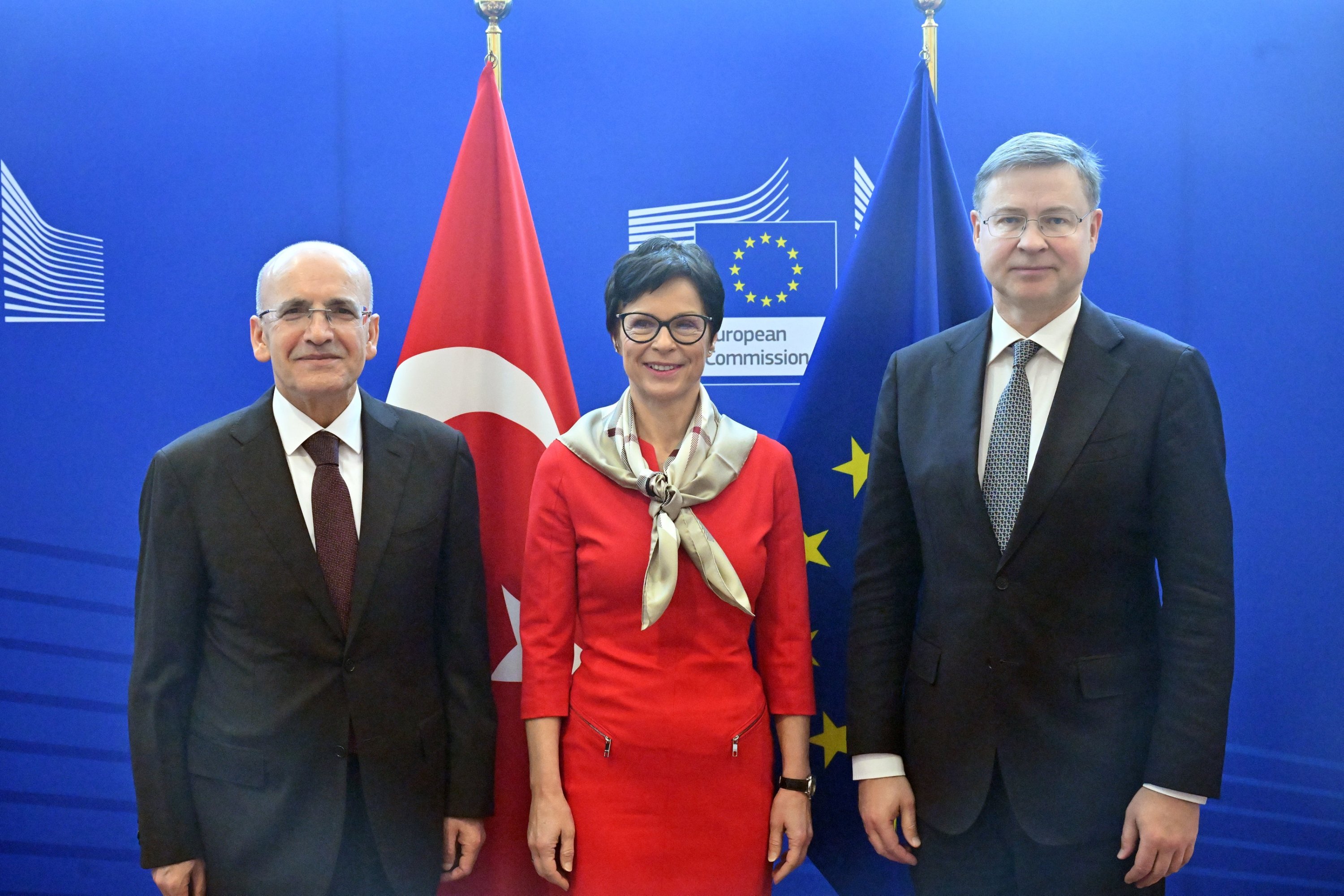© Turkuvaz Haberleşme ve Yayıncılık 2026
The first high-level economic dialogue between Türkiye and the European Union in six years marked "a very important and positive step to improve relations," a top official said on Friday.
Treasury and Finance Minister Mehmet Şimşek said Türkiye seeks to strengthen ties with the EU, and that the economic dialogue between the sides has started off positively.
Şimşek was in Brussels on Thursday for the Türkiye-EU High-Level Economic Dialogue and held talks with EU Commissioner for Economy and Productivity Valdis Dombrovskis and EU Commissioner for Enlargement Marta Kos.
"The meeting took place in a very constructive atmosphere," the minister told Anadolu Agency (AA).
On Thursday, he said the two sides developed a consensus on enhancing economic relations and increasing cooperation.
The Türkiye-EU High-Level Economic Dialogue was first established at a summit in late 2015. The last meeting was held in 2019.
The decision to revive the dialogue was made at the EU General Affairs Council meeting last December and later approved at an EU heads of state and government summit.
The next meeting will be hosted in Türkiye next year, Şimşek said.
For decades, Türkiye and the bloc have enjoyed good trade ties and cooperation on migration. However, relations have been strained over multiple issues, including the prolonged process of modernization and expansion of the scope of the current customs union agreement, maritime issues with Greece and Greek Cyprus and EU policies on Syrian refugees.
Thursday's meeting addressed the economic outlook in Europe and Türkiye, along with challenges that the two sides face, said Şimşek. He said Türkiye presented its reform plans and disinflation efforts.

The EU side shared its perspective on new policy directions amid global uncertainty, the minister noted.
"There are important changes in the world, and both the EU and Türkiye are impacted by these developments," he said.
Şimşek said cooperation was discussed as a way to cushion the fallout from global changes and promote mutual benefits, including engagement in third countries.
Şimşek said he discussed updating the Türkiye-EU Customs Union and advancing visa liberalization with Dombrovskis and Kos.
Officials insist that its modernization would comprehensively shake up economic relations between the sides.
A host of disagreements over recent years have stalled the negotiations for updating the deal. The deeper 1990s-era agreement would be expanded to services, farm goods and public procurement.
Türkiye is the only non-EU country that has a customs union deal with the bloc. The agreement was struck in 1995. In its Dec. 21, 2016, assessment, the European Commission proposed revamping the deal.
The current customs union agreement only covers a limited range of industrial products.
The Turkish business community has been increasingly exasperated by the bureaucratic hurdles involved in securing Schengen visas, a system that was once considered routine but has now become an obstacle for many.
Lengthy processing times and a growing number of EU visa rejections in recent years turned into a row that has been straining already sensitive relations.
Şimşek said top representatives of the European Investment Bank and the European Bank for Reconstruction and Development also attended Thursday's talks to explore investment and financing opportunities.
High-level meetings were also held with European business circles.
"I can say that the economic dialogue started well and I hope this dialogue will pave the way for more dialogues to come, particularly in the fields of transportation, energy and politics," Şimşek said.
